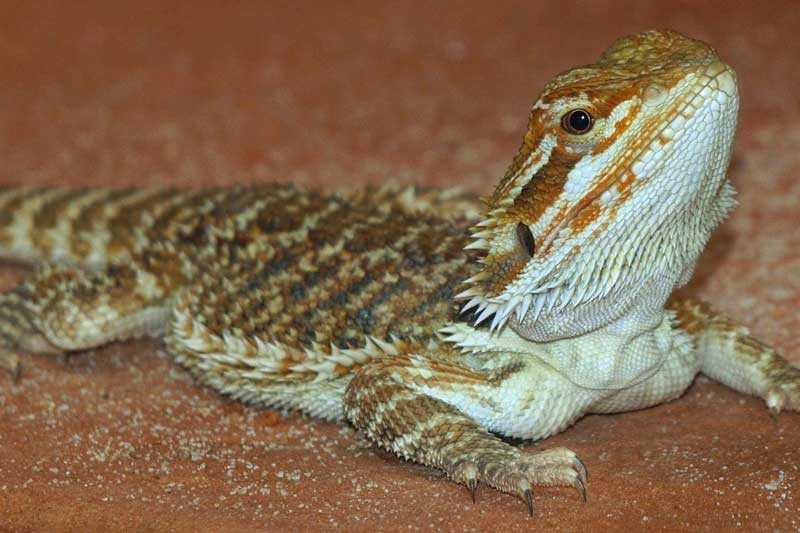
When feeding earthworms to your bearded dragon, it’s essential to follow a few guidelines:
- Feed earthworms that are appropriate in size for your bearded dragon. Avoid feeding large earthworms that could potentially cause choking.
- Only feed earthworms that have been gut-loaded, meaning they have been fed a nutritious diet before being offered to your bearded dragon.
- Offer earthworms as a treat, rather than a staple food. They should not make up the majority of your bearded dragon’s diet.
- Monitor your bearded dragon’s health and digestion after introducing earthworms to their diet. If you notice any negative changes, consult a veterinarian.
Are Earthworms Safe for Bearded Dragons?
One common question that many bearded dragon owners have is whether or not earthworms are safe for their pets to eat. The answer is yes, bearded dragons can eat earthworms. In fact, earthworms can be a nutritious addition to a bearded dragon’s diet.
Earthworms are a good source of protein for bearded dragons. They also contain essential nutrients such as calcium, iron, and vitamins. These nutrients are important for the overall health and well-being of your dragon. Feeding your dragon a varied diet that includes earthworms can help ensure that they are getting all the nutrients they need.
Nutritional Value of Earthworms for Bearded Dragons
Bearded dragons are omnivorous reptiles and require a balanced diet that includes both plant matter and animal protein. Earthworms can be a nutritious part of a bearded dragon’s diet due to their high protein content and beneficial nutrients.
Earthworms are a good source of animal protein, which is essential for the growth and development of bearded dragons. Protein is important for tissue repair, muscle growth, and the production of essential enzymes and hormones. Including earthworms in a bearded dragon’s diet can help ensure they are getting enough protein to support their overall health.
In addition to protein, earthworms also provide other important nutrients for bearded dragons. They are rich in vitamins such as vitamin A, vitamin E, and B vitamins, which are essential for various bodily functions, including immune health, cell growth, and metabolism. Earthworms also contain minerals like calcium and phosphorus, which are vital for strong bones and teeth.
Another benefit of including earthworms in a bearded dragon’s diet is their high moisture content. These reptiles require proper hydration, and earthworms can help meet their water needs. The moisture in earthworms can contribute to their overall hydration, reducing the risk of dehydration.
| Nutrient | Amount per 100g of Earthworms |
|---|---|
| Protein | 11g |
| Fat | 1g |
| Carbohydrates | 2g |
| Calcium | 17mg |
| Phosphorus | 85mg |
| Vitamin A | 300 IU |
| Vitamin E | 0.5mg |
| Vitamin B1 | 0.1mg |
| Vitamin B2 | 0.2mg |
These values may vary depending on the specific species of earthworm, but they provide a general idea of their nutritional composition.
Can Bearded Dragons Digest Earthworms?
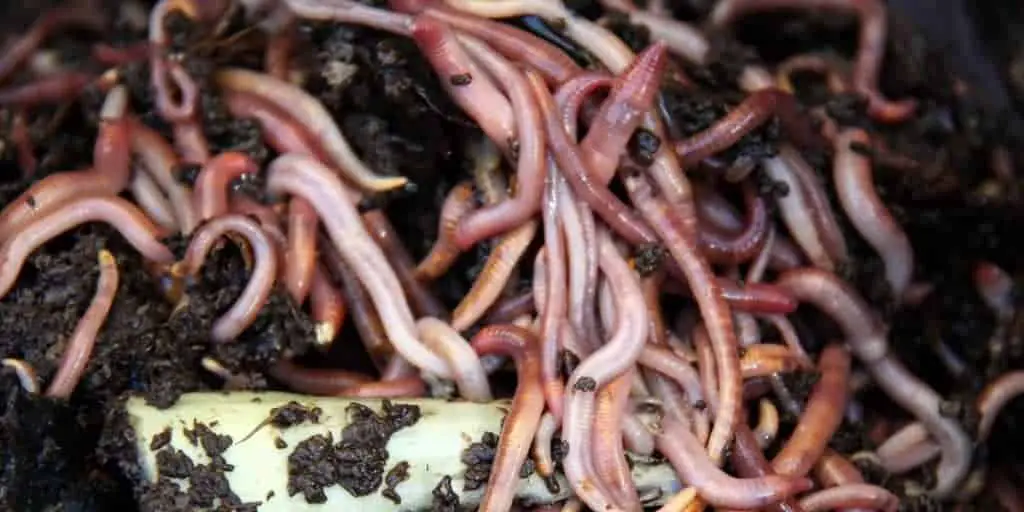
Nutritional Value of Earthworms for Bearded Dragons
Digestibility of Earthworms for Bearded Dragons
Signs of Digestive Issues:
- Decreased appetite
- Vomiting
- Diarrhea
- Constipation
If any of these signs occur after feeding earthworms to a bearded dragon, it is advisable to discontinue the earthworms and seek veterinary advice.
Considerations for Feeding Earthworms to Bearded Dragons
When feeding earthworms to bearded dragons, there are a few considerations to keep in mind:
Sourcing:
Size:
Choose appropriately sized earthworms for the bearded dragon. Earthworms that are too large may cause choking or other digestive issues.
Frequency:
Earthworms should be offered as part of a varied diet for bearded dragons, rather than the sole source of nutrition. Feeding earthworms too frequently can lead to imbalances in their diet.
Preparation:
Considerations for Feeding Earthworms to Bearded Dragons
Preparation and Feeding: Before feeding earthworms to your bearded dragon, make sure to properly clean and prepare them. Remove any soil or debris and rinse them thoroughly. Additionally, ensure that the earthworms are alive and healthy before offering them as food. Bearded dragons are more likely to eat moving prey items, so live earthworms may be more enticing to them.
Observation and Allergic Reactions: After introducing earthworms into your bearded dragon’s diet, closely observe their behavior and monitor for any signs of allergies or negative reactions. Some bearded dragons may be sensitive to certain foods, so it’s essential to watch for any changes in appetite, behavior, or digestion.
Can Earthworms be a Regular Part of a Bearded Dragon’s Diet?
Earthworms are rich in protein, which is essential for the growth and development of bearded dragons. Protein helps in building and repairing muscles, as well as supporting the overall health of the reptile. Additionally, earthworms contain essential amino acids that are necessary for proper bodily functions.
Another benefit of feeding earthworms to bearded dragons is their high moisture content. These reptiles require a certain level of hydration to maintain their health, and earthworms can help fulfill this need. The moisture in earthworms aids in digestion and prevents dehydration in bearded dragons.
Nutritional Value of Earthworms for Bearded Dragons
Earthworms are not only high in protein, but they also offer other essential nutrients that bearded dragons need. They are a good source of calcium, which is crucial for bone health and preventing metabolic bone disease. Earthworms also contain vitamins such as vitamin A, vitamin E, and vitamin D3, all of which contribute to the overall well-being of bearded dragons.
Furthermore, earthworms are low in fat, making them a suitable food choice for bearded dragons. These reptiles require a balanced diet that is not too high in fat, as excessive fat intake can lead to obesity and other health issues. Earthworms provide the necessary nutrients without adding unnecessary fats to their diet.
How to Prepare Earthworms for Bearded Dragons
Next, you will want to wash the earthworms thoroughly to remove any dirt or debris. This can be done by placing them in a fine-meshed sieve or colander and running water over them. Once cleaned, you can feed the earthworms to your bearded dragon, either alive or pre-killed.
Considerations for Feeding Earthworms to Bearded Dragons
Additionally, bearded dragons should only be fed earthworms that are an appropriate size for their age and size. Large earthworms may be challenging for young or smaller bearded dragons to consume, leading to potential choking hazards. It is best to offer earthworms that are no longer than the distance between the bearded dragon’s eyes.
| Key Takeaways: |
|---|
| – Earthworms can be a regular part of a bearded dragon’s diet. |
| – Earthworms are rich in protein and essential amino acids. |
| – They also provide moisture, aiding in hydration and digestion. |
| – Earthworms are low in fat and contain important vitamins and minerals. |
| – Proper preparation and feeding in moderation are key. |
How to Prepare Earthworms for Bearded Dragons
1. Sourcing Earthworms
2. Cleaning and Quarantining Earthworms
Before feeding earthworms to your bearded dragon, it’s essential to clean and quarantine them properly. Start by rinsing the earthworms in clean water to remove any excess dirt or debris. Next, place them in a separate container with a substrate similar to that of the bearded dragon’s enclosure. This will allow you to monitor the earthworms for any signs of illness, parasites, or disease.
3. Gut-loading Earthworms
Gut-loading is a process in which the feeder insects or earthworms are fed a nutritious diet to enhance their nutritional value for the bearded dragon. Before feeding earthworms to your pet, feed them a variety of nutrient-rich foods such as fresh fruits and vegetables or a commercial gut-loading formula designed for feeder insects. This will ensure that the earthworms are packed with essential nutrients when consumed by your bearded dragon.
4. Dusting Earthworms
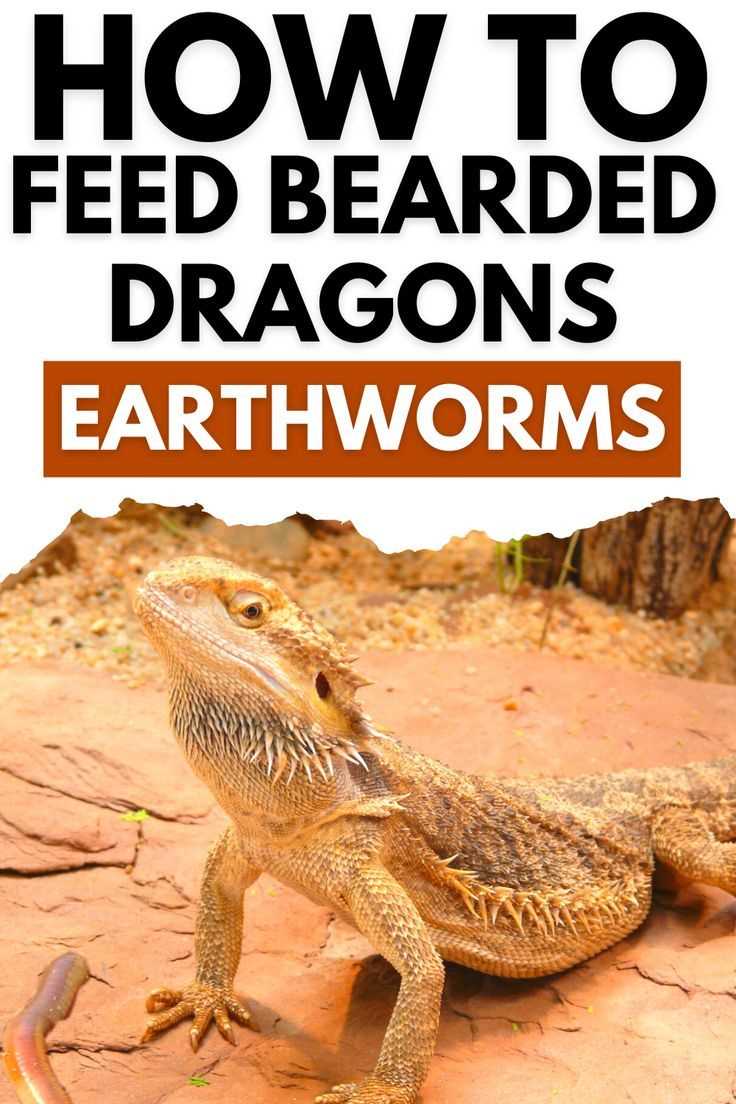
Bearded dragons require a balanced diet to meet their nutritional needs. While earthworms are a good source of protein, they may not provide all the necessary vitamins and minerals. To enhance their nutritional value, it is recommended to dust the earthworms with a calcium and vitamin supplement specifically designed for reptiles. This will help prevent nutritional deficiencies in the bearded dragon’s diet.
5. Feeding Earthworms to Your Bearded Dragon
Once the earthworms have been properly prepared, it’s time to feed them to your bearded dragon. Offer the earthworms in a shallow dish or directly by hand. Some bearded dragons may prefer to chase and catch their food, while others may need the earthworms to be wiggled or moved in front of them to entice them to eat. Monitor your pet during feeding to ensure they are eating the earthworms properly and not showing any signs of distress.
Remember, earthworms should be fed as a treat or a supplement to a balanced diet that includes a variety of other foods. It’s essential to provide a well-rounded diet to meet your bearded dragon’s nutritional needs. Consult with a reptile veterinarian or herpetologist for specific feeding instructions and to ensure your bearded dragon’s diet is properly balanced. With proper preparation and supplementation, earthworms can be a healthy and enjoyable addition to your bearded dragon’s diet.
Alternatives to Earthworms for Bearded Dragon’s Diet
Crickets
Dubia Roaches
Dubia roaches are another popular option for bearded dragons. They are high in protein and low in fat, making them an excellent choice for maintaining a healthy weight. These roaches can be bought from reputable breeders or pet stores.
Mealworms
Superworms
Greens and Vegetables
While feeder insects are an essential part of a bearded dragon’s diet, it’s also crucial to provide a variety of greens and vegetables. These can include collard greens, mustard greens, dandelion greens, squash, and bell peppers. These foods provide essential vitamins and minerals and should make up the majority of a bearded dragon’s diet.
Commercial Diets
If you are unable to provide live or alternative feeder insects, there are also commercial diets available specifically formulated for bearded dragons. These diets typically come in pellet or powder form and provide a balanced nutritional profile. However, it’s essential to read the ingredients carefully to ensure they meet the specific dietary needs of your bearded dragon.
| Feeder Insect | Protein Content | Fat Content |
|---|---|---|
| Crickets | 20-25% | 3-6% |
| Dubia Roaches | 36-40% | 14-20% |
| Mealworms | 20-25% | 13-20% |
| Superworms | 19-23% | 17-21% |
Remember to always offer a variety of food options to your bearded dragon and ensure their diet is balanced and varied. This will help ensure they receive all the necessary nutrients for optimal health and wellbeing.
Can Babies and Juvenile Bearded Dragons Eat Earthworms?
One question that many bearded dragon owners have is whether or not their babies and juvenile dragons can eat earthworms. The answer is yes, earthworms can be a nutritious and healthy part of a young bearded dragon’s diet.
Earthworms are rich in protein, which is essential for the growth and development of young dragons. They also contain beneficial nutrients such as calcium, which helps to support bone health, and vitamins that are important for overall health and well-being.
It is also important to make sure that the earthworms are properly prepared before feeding them to a young bearded dragon. Rinse them thoroughly to remove any dirt or debris, and ensure that they are fresh and free from any harmful bacteria or parasites.
Another possible risk is that some bearded dragons may have an allergic reaction to earthworms. Just like humans, animals can develop allergies to certain foods. If you notice any signs of allergies such as itching, swelling, or difficulty breathing after feeding your bearded dragon earthworms, it’s best to consult with a veterinarian.
How to Feed Earthworms to Bearded Dragons
Here are some steps to follow when feeding earthworms to your bearded dragon:
- Offer the earthworms to your bearded dragon: Place the earthworms in a separate feeding dish or directly in your bearded dragon’s enclosure. You can use tongs to hold the earthworms and offer them to your pet, or you can gently drop them into the enclosure.
- Remove any uneaten earthworms: If your bearded dragon does not eat all the earthworms you offered within a few minutes, it is recommended to remove the uneaten worms from the enclosure. This helps prevent the worms from burrowing into the substrate and potentially causing harm to your bearded dragon.
- Provide a balanced diet: While earthworms can be a nutritious addition to your bearded dragon’s diet, it is essential to provide a variety of other foods as well. Feeding a balanced diet that includes a mix of insects, vegetables, and fruits will ensure that your bearded dragon receives all the necessary nutrients.
- Monitor your bearded dragon’s health: After introducing earthworms to your bearded dragon’s diet, it is crucial to monitor their health and well-being. Look for any changes in appetite, behavior, or appearance that could indicate an adverse reaction to the earthworms. If you notice any concerns, consult a reptile veterinarian.
By following these steps, you can safely and effectively feed earthworms to your bearded dragon, providing them with a diverse and nutritious diet.
Signs of Allergies or Negative Reactions to Earthworms
One of the common signs of an allergic reaction is skin irritation or rash. If you notice redness, swelling, or itchiness on your bearded dragon’s skin after feeding them earthworms, it may indicate an allergic reaction. In such cases, it’s best to discontinue the feeding and consult a veterinarian for further guidance.
It’s also worth noting that while earthworms can be a nutritious addition to a bearded dragon’s diet, they should not be the sole source of food. A balanced and varied diet that includes a combination of live insects, fruits, vegetables, and commercially available bearded dragon pellets is essential for their overall health and wellbeing.
Conclusion
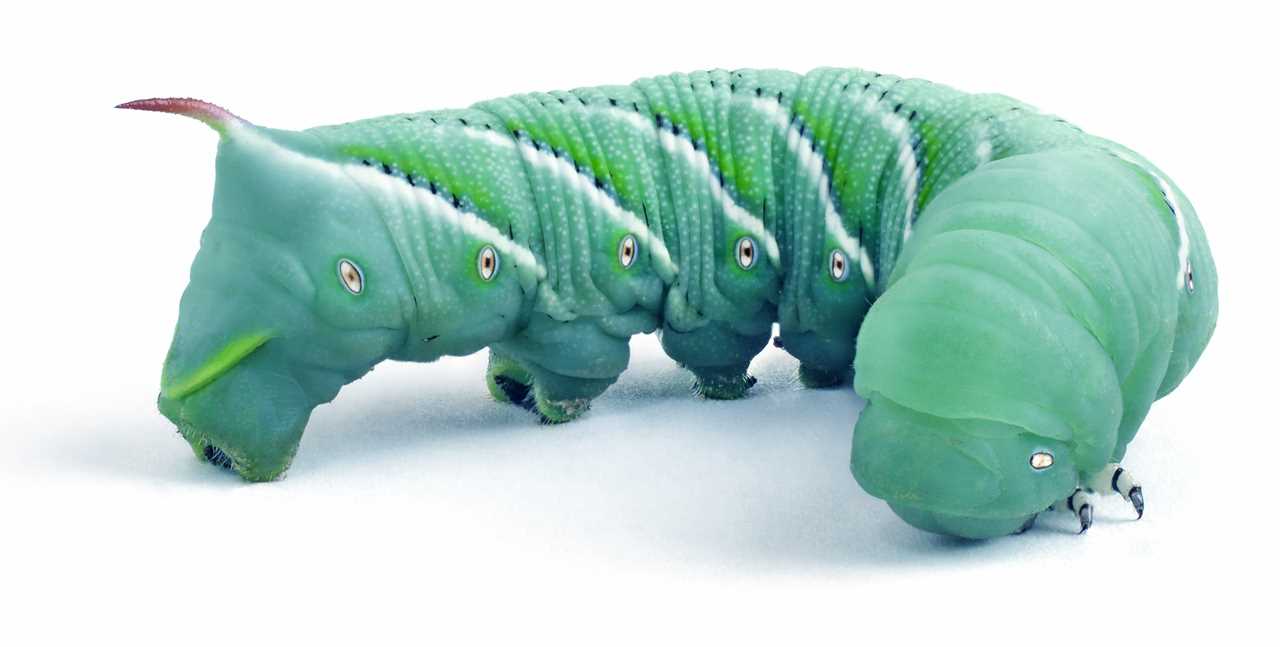
Can Bearded Dragons Eat Both Live and Dead Earthworms?
Bearded dragons can consume both live and dead earthworms as part of their diet. However, it is generally recommended to feed them live earthworms to provide a more natural hunting and feeding experience. Live earthworms mimic the movement of prey in the wild, which can help stimulate a bearded dragon’s natural hunting instinct and promote mental stimulation.
While live earthworms are preferred, some bearded dragons may be more reluctant to eat moving prey. In such cases, dead earthworms can be offered as an alternative. Dead earthworms can be purchased frozen or pre-killed and can be thawed before feeding to the bearded dragon.
Whether feeding live or dead earthworms, it is crucial to ensure the earthworms are sourced from a reliable and safe source. They should be free from pesticides, chemicals, and parasites that can be harmful to the bearded dragon.
Overall, bearded dragons can consume both live and dead earthworms, and the choice between the two depends on the preference and hunting behavior of the individual dragon. Offering a variety of prey options can help keep the bearded dragon’s diet interesting and balanced.
How Many Earthworms Should Bearded Dragons Eat?
As a general guideline, adult bearded dragons can be fed earthworms as a treat or supplement to their regular diet. It is recommended to feed them earthworms no more than once or twice a week, depending on the size of the dragon and their overall diet. For smaller adult dragons, one or two earthworms per feeding session may be sufficient, while larger dragons may require three or four.
Feeding Earthworms to Baby and Juvenile Bearded Dragons
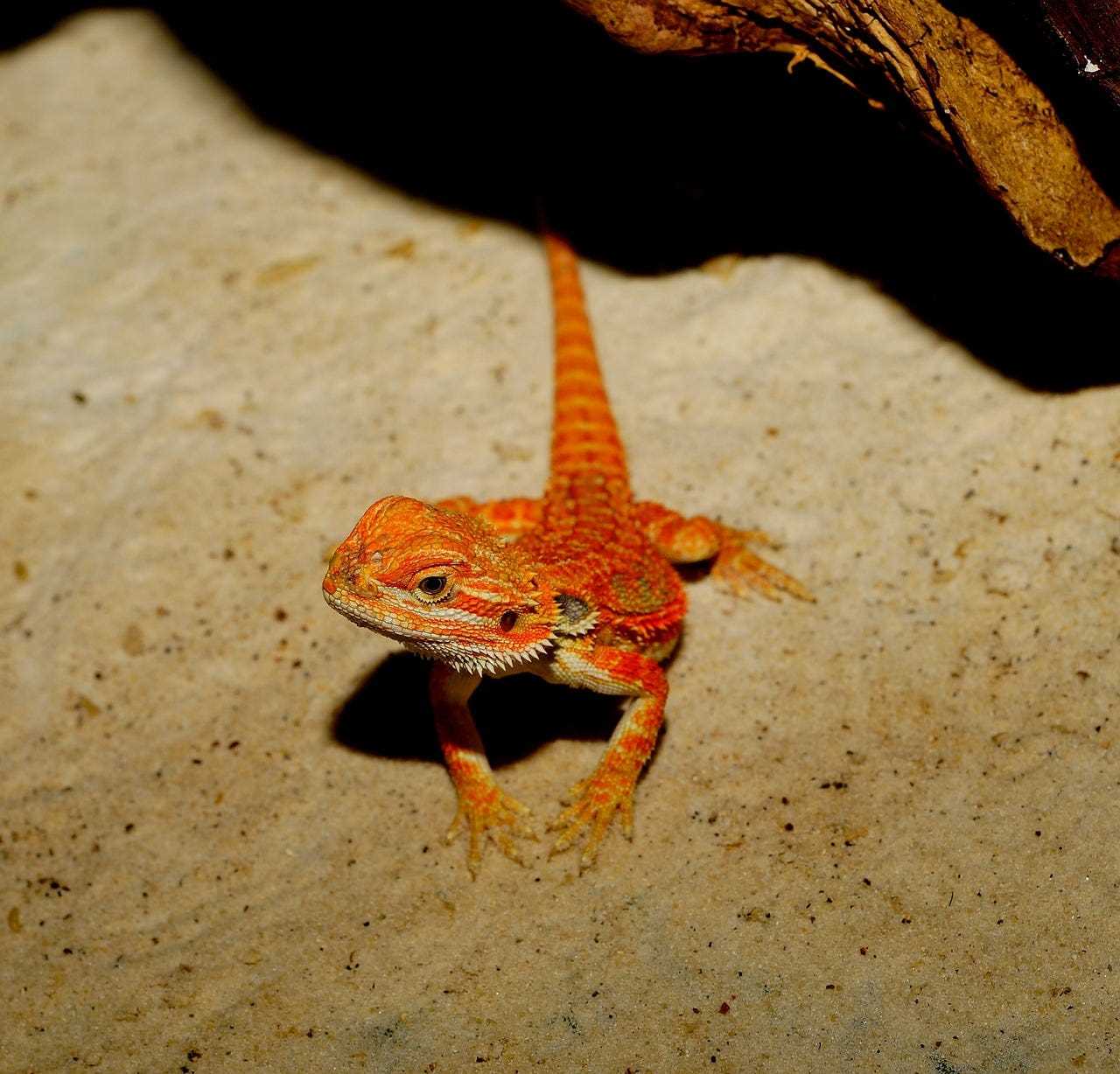
For baby and juvenile bearded dragons, the guidelines for feeding earthworms are slightly different. It is generally recommended to wait until they are at least 4-6 months old before introducing earthworms into their diet.
It is also important to ensure that the baby or juvenile bearded dragon’s diet consists of a variety of other foods to meet their nutritional needs. Earthworms should still be considered as a treat rather than a primary source of nutrition.
Monitoring the Dragon’s Health and Digestion
It is always important to provide a clean and safe feeding environment for your bearded dragon. Ensure that the earthworms are sourced from a reputable supplier and are free from pesticides, chemicals, or potential parasites.
Can Bearded Dragons Eat Earthworm Eggs?
Many bearded dragon owners wonder if their pets can eat earthworm eggs. While earthworms are generally considered a safe and nutritious food source for bearded dragons, the same cannot be said for their eggs.
Earthworm eggs are small, round capsules that contain multiple developing earthworm embryos. These eggs are typically buried deep in the soil and are not easily accessible to bearded dragons in their natural habitats.
It is not recommended to feed bearded dragons with earthworm eggs for several reasons:
1. Nutritional Value:
Earthworm eggs lack the same nutritional value as adult earthworms. Adult earthworms have a high protein content and provide essential nutrients like calcium and phosphorus. However, earthworm eggs do not provide the same level of nutrition and may not be beneficial to the overall health of bearded dragons.
2. Digestibility:
Earthworm eggs have a tough outer shell, which may make them difficult for bearded dragons to digest. The digestive systems of bearded dragons are not specifically adapted to break down these types of eggs, making them potentially hard to process and potentially leading to digestive issues.
3. Potential Risks:
Feeding bearded dragons with earthworm eggs can pose potential risks. The eggs may contain parasites or pathogens, which could harm the digestive system or overall health of the bearded dragon. Additionally, if the eggs were collected from an area treated with pesticides or other chemicals, they may contain toxic residues.
Therefore, it is best to avoid feeding earthworm eggs to bearded dragons. Stick to feeding them live or freshly-killed adult earthworms, which are more suitable for their nutritional needs. Always ensure that the earthworms are sourced from a reputable supplier and are free from any potential contaminants. Consulting with a reptile veterinarian is also advisable to ensure a balanced and healthy diet for your bearded dragon.

I’m Lena Adams—a product of an unconventional upbringing in the African wilderness. My father, a daring explorer of African wildlife, sparked my fascination with reptiles, a passion that intertwined with the tragic loss of my mother during an expedition, leaving an indelible mark on my life. Driven to understand the creatures that captivated my parents, I embarked on my journey, sharing insights about reptiles, frogs, and lizards on my website. Through my explorations and conservation efforts, I honour my family’s legacy while seeking connections—to the creatures, nature, and the mother whose presence I yearn to understand.
